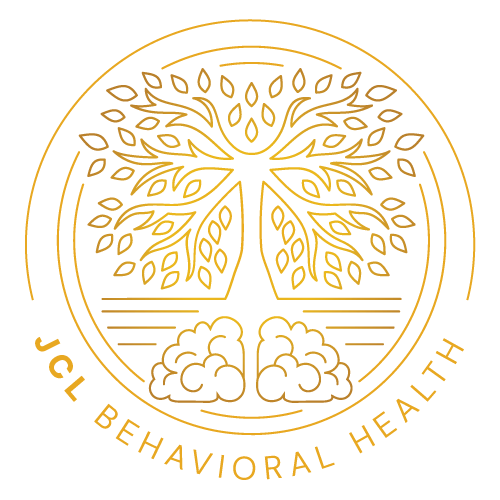Water is key for health, right? But the impact on our minds is often forgotten.
The question “Can Dehydration Cause Anxiety?” is worth exploring, as the connection between hydration and mental health is often overlooked.
In this post, we’ll explore the ties between the lack of water and increased anxiety.
We’ll delve into the science backing this connection and provide helpful suggestions on maintaining hydration to reduce anxiety.
What is Dehydration?
Dehydration occurs when the body sheds more liquids than it absorbs. Causes can vary. They can be from insufficient water intake, excessive perspiration, or illness causing vomiting or diarrhea.
The body experiences difficulty with regular functions when it’s low on water. This can lead to various health complications.
Common Symptoms of Dehydration
- Thirst
- Dry mouth
- Dark yellow urine
- Fatigue
- Dizziness
- Confusion
The Link Between Dehydration and Anxiety
How Dehydration Affects the Brain
Without enough water, your brain doesn’t work well. Water is vital for balancing electrolytes in your body, important for nerves. Lack of water messes up your brain cells’ communication, causing thinking problems and mood changes.
Can Dehydration Cause Anxiety?
So, can dehydration cause anxiety? The short answer is yes. Lack of water can boost anxiety by triggering or worsening its symptoms.
Your body, when dehydrated, goes into stress mode, letting out cortisol, a hormone linked to stress. This surge in cortisol might increase your feelings of worry and overwhelmed.
Scientific Studies on Dehydration and Anxiety
Research Findings
Many research findings show that not drinking enough water can cause anxiety.
- According to Medical News Today, some research says that people who drink more water might feel less anxious.
- If you’re wondering, “can dehydration cause depression and anxiety?” research published on the NCBI website shares that people who drink more water are less likely to be anxious or depressed.
Biological Mechanisms
It’s all about balance in our neurotransmitters and mood-regulating hormones. When we don’t drink enough water, our serotonin levels can be thrown off. Serotonin is a neurotransmitter that helps keep our mood stable. When it’s disturbed, we may feel anxious or down.
How to Stay Hydrated
Daily Water Intake Recommendations
How much water you need depends on things like age, gender, weight, and how active you are. But, a good rule is to drink at least 8 cups (64 ounces) of water every day. Monitoring your urine color can also be a good indicator; aim for light yellow or clear urine.
Tips for Staying Hydrated
- Keep a refillable water bottle close by. It’ll remind you to stay hydrated all day.
- Need a reminder? Use your cell phone or an app to jog your memory to drink water often.
- Foods like cucumbers, watermelons and cantaloupe are super hydrating and can help you stay hydrated.
- Be cautious of too much caffeine and alcohol considering both can make you lose fluids.
Some Additional Factors that Can Cause Anxiety
Nutrition
Eating healthy foods, enriched with nutrients, aids in relaxation. Say, Omega-3s, available in fish and flaxseeds, it’s beneficial for the brain.
Sleep
Sleep plays a huge role. Insufficient sleep can amplify anxiety. Thus, ensuring a good sleep of 7-9 hours nightly can help lessen anxiety.
Physical Activity
Being active is another great way. It lets out endorphins, the body’s natural mood lifters. Even a short walk can make a huge difference in how you feel inside.
When to Get Professional Help
Recognizing Severe Anxiety
Drinking water can ease slight worry, but for extreme anxiety, you need a professional’s help. Trouble signs include frequent worry, sudden fears, and physical issues like racing heartbeat and breath shortage.
Consult a Healthcare Provider
Is dehydration causing anxiety in you? If it’s extreme, it’s vital to talk to a health professional about how to handle it. This might mean therapy, taking medicine, or adjusting your lifestyle.
Practical Steps to Manage Anxiety and Stay Hydrated
Create a Routine
Creating a day-to-day schedule will assist in balancing drinking water and stress management. Carve out set times for drinking eater, having nutritious meals, working out, and winding down before bed.
Use Hydration Aids
Think about hydration tablets or electrolyte beverages, valuable if you’re super active or residing in tropical weather.
The Takeaway
So, can dehydration cause anxiety? Absolutely.
Even if not being the only reason, lack of water can indeed trigger signs of anxiety. Keeping up with a good water intake is a basic and efficient method to help your mental health.
Join the JCL Community
At JCL, we understand the importance of holistic health. We provide resources and assistance to handle both physical and emotional health.
Reach out now to get professional tips and a caring community to help you lead an optimal life. Keep drinking water, keep feeling joy.
FAQs
Does dehydration cause anxiety?
Yes, dehydration can cause anxiety. Not having enough water can lead your body’s electrolytes and hormones to get out of balance, which can heighten feelings of stress and anxiety.
Can dehydration cause panic attacks?
Indeed, for some, a state of dehydration can amplify anxiety symptoms and possibly trigger a panic attack. When short of water, the body’s stress response may crank up, allowing anxiety to spiral into panic. So dehydration and panic attacks can be sometimes linked.
Is dehydration causing anxiety in me?
If you’re feeling symptoms like a faster heartbeat, lightheadedness, or confusion alongside your anxiety, it’s possible that not drinking enough water plays a part. Consuming enough water can help you manage these symptoms.
Can being dehydrated make you anxious?
Absolutely. Insufficient hydration can tamper with brain function and stress hormone balances, such as cortisol, resulting in heightened anxiety.




No comment